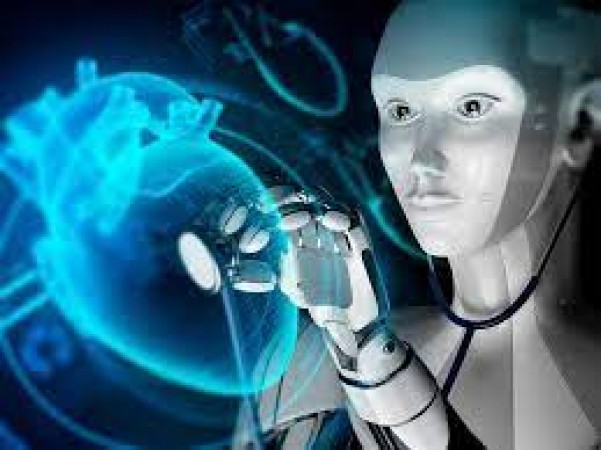
In recent years, the integration of artificial intelligence (AI) in healthcare has taken unprecedented strides. Among the numerous applications, one particularly groundbreaking development is the detection of sudden heart attacks using advanced AI algorithms. This article delves into the intricacies of this revolutionary breakthrough and explores how it promises to reshape the landscape of cardiovascular health.
Sudden heart attacks often strike without warning, emphasizing the need for proactive detection methods. Unlike some medical conditions that exhibit noticeable symptoms, heart attacks can occur with minimal warning signs, making early detection challenging.
Exploring the alarming statistics surrounding sudden heart attacks and their impact on global health. According to recent data from the World Health Organization (WHO), heart attacks are a leading cause of mortality worldwide, highlighting the urgent need for advanced detection methods to address this global health concern.
How machine learning algorithms analyze vast datasets to identify subtle patterns indicative of impending heart issues. AI systems leverage machine learning algorithms to process extensive datasets, learning and recognizing patterns that may precede a sudden heart attack. This capability enables early detection and intervention, potentially saving lives.
The promise of continuous monitoring through wearable devices and its potential to save lives. Wearable devices equipped with AI-driven monitoring capabilities offer real-time insights into an individual's heart health. This continuous monitoring allows for timely intervention and personalized healthcare strategies tailored to the patient's specific needs.
Understanding the complex algorithms that power AI systems in detecting cardiac anomalies. AI algorithms in sudden heart attack detection involve intricate mathematical models and pattern recognition. These algorithms analyze various parameters, such as heart rate variability and electrocardiogram (ECG) data, to identify deviations indicative of potential cardiac issues.
Examining how AI seamlessly integrates with traditional healthcare systems for comprehensive patient care. The integration of AI into existing healthcare infrastructure streamlines the diagnostic process. It enables healthcare professionals to access AI-generated insights alongside traditional diagnostic methods, fostering a collaborative approach to patient care.
Safeguarding patient information and maintaining confidentiality in the era of AI-driven healthcare. The adoption of AI in healthcare raises concerns about the security and privacy of patient data. Robust measures must be in place to ensure the secure storage and transmission of sensitive medical information.
Exploring the ethical considerations surrounding the use of AI in critical healthcare decision-making. Ethical dilemmas arise concerning the responsibility of AI systems in making healthcare decisions. Striking a balance between AI assistance and human oversight is crucial to ensure ethical decision-making aligned with patient well-being.
How AI aids in crafting individualized treatment regimens based on patient-specific data. AI goes beyond detection by analyzing patient data to formulate personalized treatment plans. This approach considers individual health profiles, contributing to more effective and targeted interventions.
The role of AI in educating individuals about heart health and preventive measures. AI-driven educational initiatives empower individuals to take proactive measures in maintaining heart health. By providing accessible information, AI contributes to a more informed and health-conscious population.
Addressing the challenges that come with the implementation of AI in healthcare on a large scale. Despite the promising potential of AI, challenges such as interoperability, data standardization, and system integration need careful consideration. Overcoming these technological hurdles is essential for the widespread success of AI applications in healthcare.
Predicting the future advancements and collaborative efforts driving further breakthroughs. Continuous innovation and collaboration between technology developers, healthcare professionals, and regulatory bodies are pivotal for the sustained progress of AI in sudden heart attack detection. These collaborations aim to refine existing technologies and explore novel solutions to enhance patient outcomes.
How user-friendly interfaces make AI-driven healthcare accessible to individuals from all walks of life. User-friendly applications bridge the gap between advanced AI technology and end-users. These interfaces prioritize simplicity, ensuring that individuals, regardless of technical proficiency, can benefit from AI-driven healthcare solutions.
Breaking down the technical jargon to ensure widespread understanding and acceptance. Communicating the benefits of AI in simple language is crucial for widespread acceptance. Demystifying the complex aspects of AI promotes public trust and encourages individuals to embrace AI-driven healthcare solutions.
Examining how AI-based heart attack detection transcends geographical boundaries, benefitting urban and remote populations alike. The portability of AI-driven technologies extends the reach of sudden heart attack detection to both urban centers and remote areas. This inclusivity ensures that individuals worldwide can access timely and advanced cardiac care.
The potential economic impact of widespread AI implementation in preventive cardiac care. While the initial investment in AI technology is significant, the long-term economic benefits include reduced healthcare costs associated with preventable heart-related complications. Early detection and intervention lead to more cost-effective healthcare outcomes.
In conclusion, the integration of AI in detecting sudden heart attacks represents a paradigm shift in the field of cardiovascular health. As technology continues to evolve, the synergy between human expertise and artificial intelligence holds the key to a healthier, heart-conscious world. Embracing the full potential of AI in healthcare requires ongoing collaboration, ethical considerations, and a commitment to making advanced technologies accessible to all.
PM Modi Predicts Ashok Gehlot Government's Unlikelihood in Rajasthan
Dalai Lama will preach in Gangtok near China border, program to be held on December 12